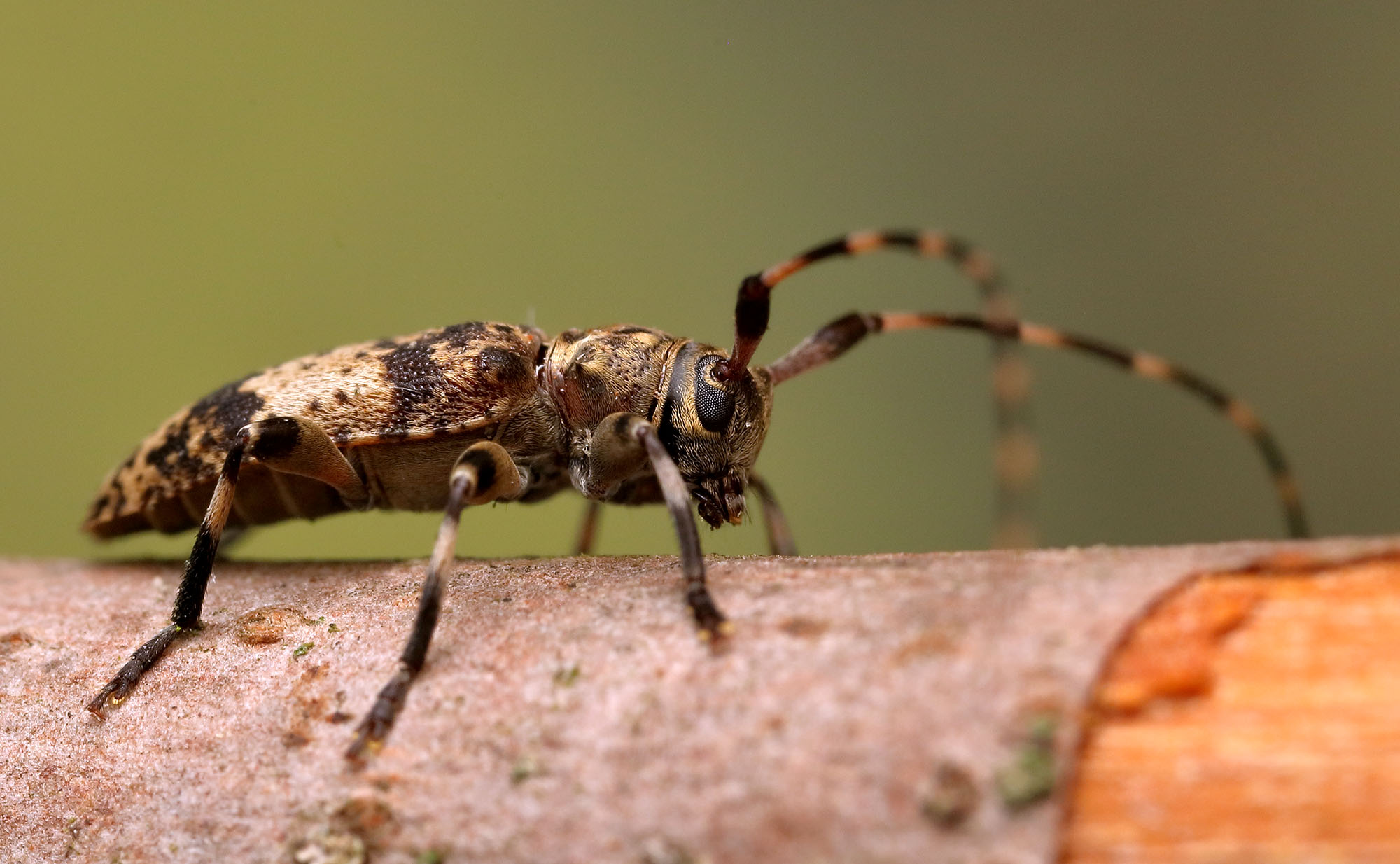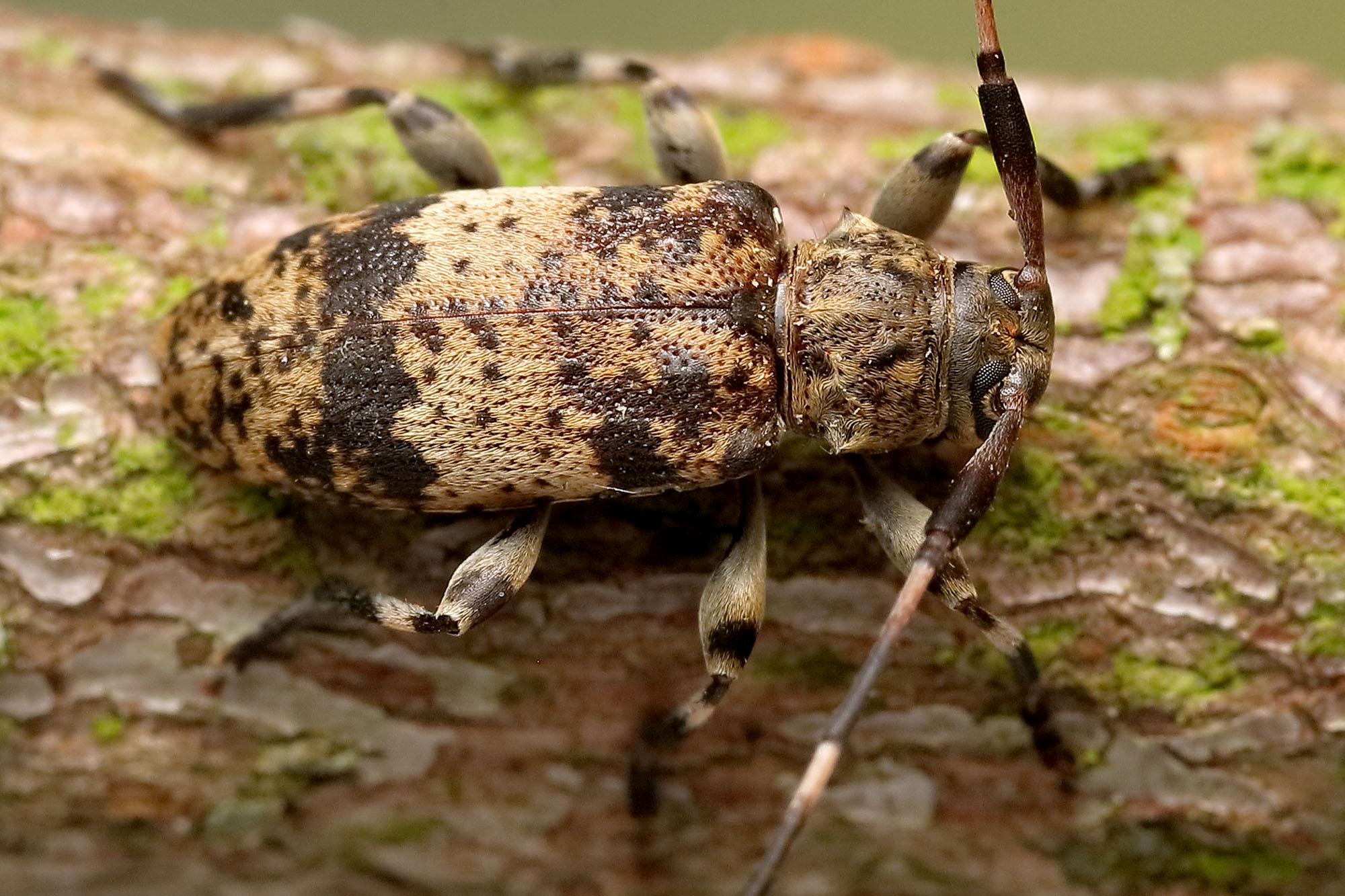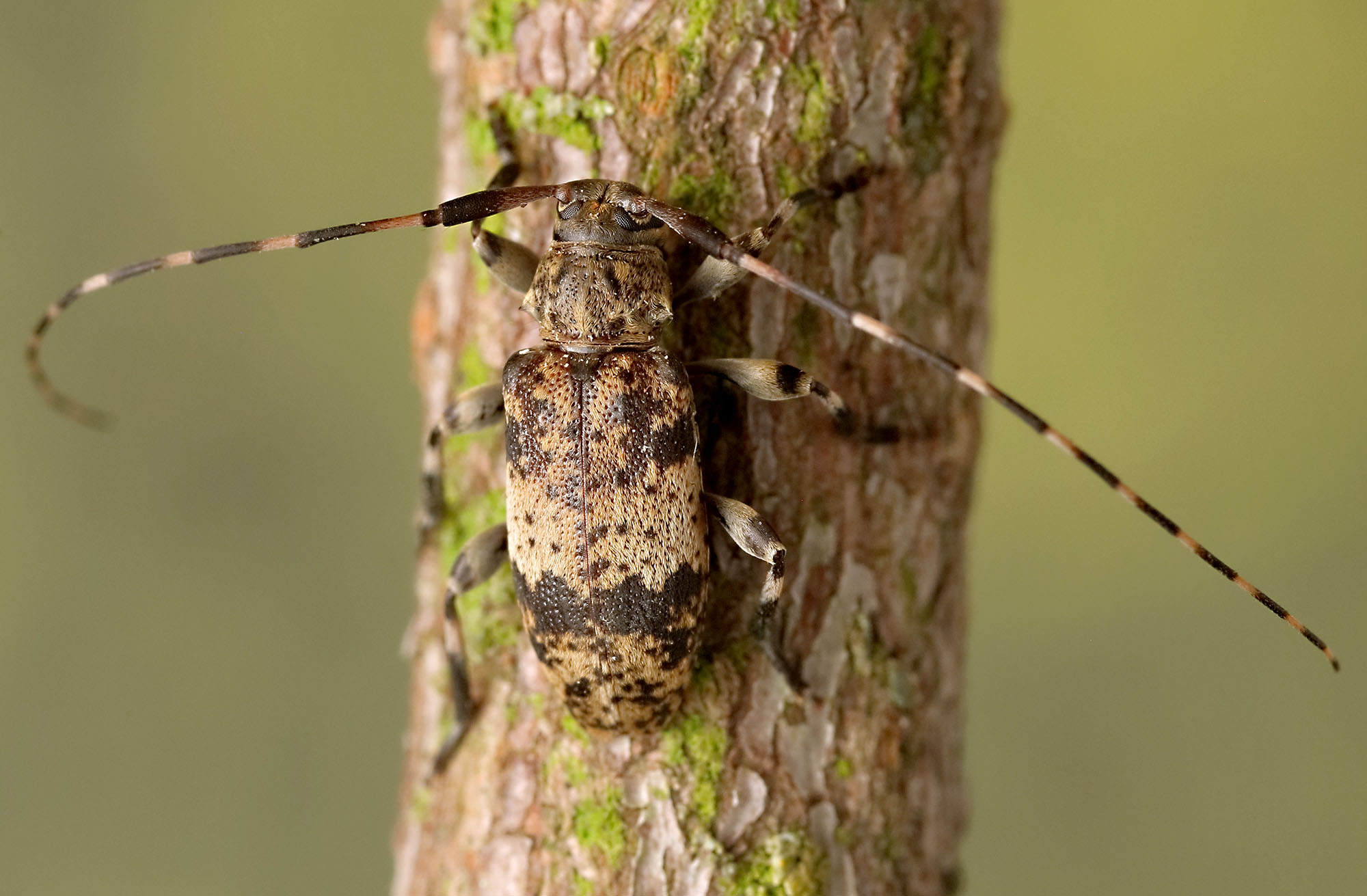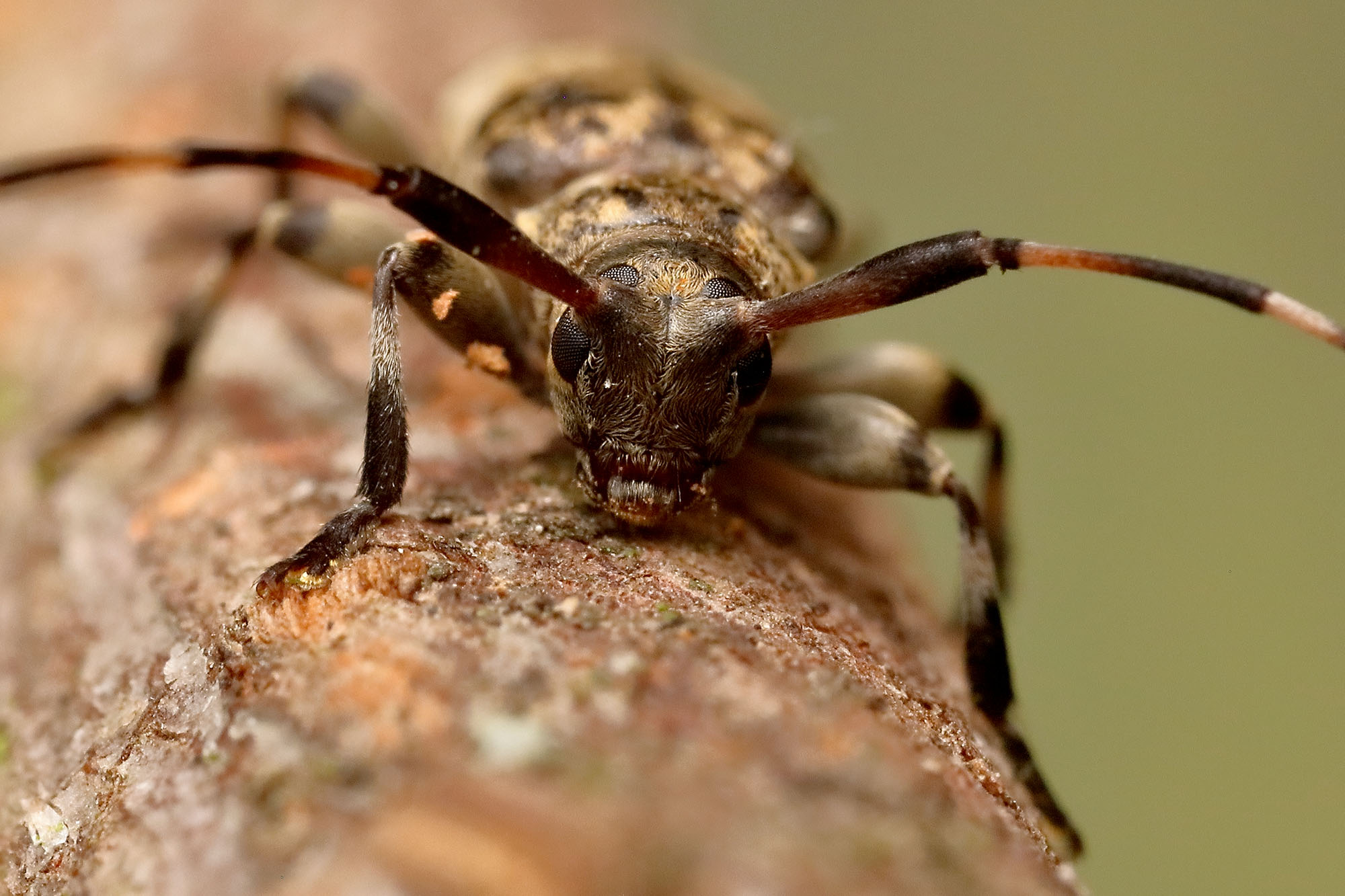Subfamilia: LAMIINAE / Tribus: ACANTHOCININI

[Photo © Milan Lovětínský]
Leiopus linnei, described by Henrik Wallin, Ulf Nylander and Torstein Kvamme in 2009 [❖], is in Europe sibling species to well known and highly variable Leiopus nebulosus (Linnaeus, 1758). Both species differ in combination of characters, including the male genitalia and female spermathecae. Leiopus linnei appears to be common in central Europe and is here also probably more anbundant then L. nebulosus, which is predominantly recorded from coastal areas of Europe.
Body length: ♂♂ 5.0–9.2 mm / ♀♀ 6.4–9.5 mm Life cycle: 1 - 2 years Adults in: May - July Host plant: polyphagous in deciduous trees (Fagus, Quercus, Carpinus, Juglans, Acer, Ulmus, Betula, Salix, Prunus) Distribution: Austria, Bulgaria, Croatia, Czechia, Denmark, France, Great Britain, Germany, Macedonia, Norway, Poland, Romania, Slovakia, Slovenia, Switzerland, Ukraine
The depicted beetle was reared from larva found in a dead oak (Quercus sp.) in Křivoklátsko Protected Landscape Area (Central Bohemia, Czechia) in winter 2021.Collected by Miroslav Polcar
[❖]
Wallin H., Nylander U. and Kvamme T.:
Two sibling species of Leiopus Audinet-Serville, 1835 (Coleoptera: Cerambycidae) from Europe: L. nebulosus (Linnaeus, 1758) and L. linnei sp. nov.
Zootaxa 2010: 31-45, 2009. [download]




[Photo © Milan Lovětínský]
Subfamilia: Lamiinae Latreille, 1825
Tribus: Acanthocinini Blanchard, 1845
Genus: Leiopus Audinet-Serville, 1835
Species: Leiopus (Leiopus) linnei Wallin, Nýlander et Kvamme, 2009
